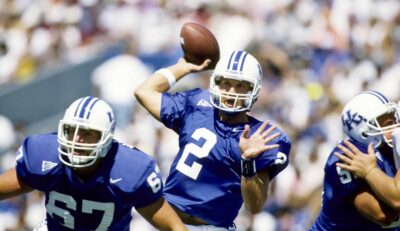
After an interesting week in Hoover, it’s time for the real show. With the SEC grabbing 3 of the top 4 national seeds, boasting 7 regional hosting sites and sending 9 teams to the NCAA Tournament, there’s no question about the league’s pre-eminence. But in a battle to Omaha, who will be left standing and who got a raw deal? Time to go inside the SEC situation for this pre-NCAA Tournament edition of 9 innings.
1. Arkansas earned it and got rewarded for it
The Razorbacks completed a dream season having been on top of all major college baseball polls since April 12th with an undefeated run in the SEC Tournament in Hoover. Perhaps the most surprising development was Connor Noland’s outstanding work in a 3-2 semifinal win over Ole Miss. Noland, who lowered his season ERA to a humbling 8.44 after an injury-plagued campaign, was untouchable in 3 shutout innings, flashing the form he’d shown in parts of 2019 and the brief 2020 season. If he’s another tough arm out of the Arkansas bullpen, foes better get ahead of Arkansas early or they’ll suffer late.
The Hogs earned the overall No. 1 seed and have only Nebraska and potentially Louisiana Tech (or NC State) standing between them and a spot in Omaha. Of course, the Nebraska matchup is interesting for Arkansas coach Dave Van Horn, since he guided the Huskers to 2 of their 3 all-time College World Series appearances. There’s no real reason to fear any of those opponents for UA.
2. The Vols could have gotten an easier run
UT played well in Hoover, finishing second and earning the No. 3 overall seed in the NCAA Tournament, giving the Vols their first spot hosting a regional tournament since 2005. UT didn’t really get that easy of a draw, starting with a Wright State team that boasts the highest-scoring offense in Division I. A potential super-regional matchup with Oregon also isn’t exactly a cushy landing spot for the nation’s No. 3 team.
Meanwhile, the talk in Hoover was largely about the controversial call at the end of Wednesday’s Alabama/Tennessee game. The Vols looked to have won the game in the bottom of the 9th inning, only for an interference call to wipe out the potential winning run, with Alabama taking the game in extra innings. UT did bounce back by playing their way to the final with Arkansas, but the NCAA did UT no favors with a bracket that will test the June mettle of a team that hasn’t played any baseball this late in quite a while.
3. Tim Corbin vs. former school highlights Vandy’s path
Vandy grabbed the No. 4 overall seed, despite a season that has to be a disappointment as it ended shy of a regular-season SEC division title or a spot in the SEC Tournament final. The Commodores will open NCAA play against Presbyterian, which is making its first NCAA Tournament appearance. The intriguing aspect is that the Presbyterian program was once led by Vandy boss Tim Corbin. Corbin went 106-138 for a Presbyterian program that was moving from NAIA to NCAA Division II. And now, they will face the Vandy Boys.
In a super-regional matchup, Vandy could see either Charlotte or East Carolina. ECU is an interesting case, as the Pirates have played a whopping 102 games in the NCAA Tournament … without ever making the College World Series. ECU has played just 6 fewer NCAA Tournament games than Vandy all-time.
For the ‘Dores, can the world-class pitching duo of Kumar Rocker and Jack Leiter turn the page from some late-season struggles? If so, the ‘Dores are as tough of an out as anybody … but if not, things will get interesting.
4. Can Mississippi State straighten it out?
The Bulldogs came into the SEC Tournament on pretty solid ground … and then completely fell apart. Losing 25-3 in 2 SEC Tournament games certainly put a damper on MSU’s spirits heading into hosting a potential Super Regional spot. Putting up just 3 runs on 12 hits was not encouraging, but the MSU pitching staff has to be sharper than they were in Hoover. Only once all year had State allowed a dozen runs in a game — and they did so on consecutive days in Hoover.
State’s regional matchup will likely be VCU, and a Super Regional showdown with Notre Dame is not particularly imposing. The Irish have earned their way into the national top 10, but Notre Dame has only been to the College World Series twice, with one of those appearances in 1957.
5. A tough road for Ole Miss
The Rebels will host a regional, but if form holds, they would have to play Arizona in Tucson in the Super Regional to earn a spot in Omaha. Meanwhile, the Rebels didn’t get an easy set-up in Oxford. They’ll have to outlast the fighting Brett Favres of Southern Miss (sitting in the top 20 themselves) and/or an underachieving but talented Florida State squad. FSU’s Matheu Nelson is one of the most talented players in the country, and Ole Miss will have to work hard to keep him in the ballpark (22 homers this season).
6. Challenges for Florida
Likewise, the preseason No. 1 Florida Gators will host a regional, but potentially not a Super Regional. No. 2 overall seed Texas is on the other side of the Super Regional bracket, so a trip to Austin would be a likely prerequisite for a trip to Omaha. First, Florida has to probably survive a Miami squad that won a season-opening series from the Gators in Gainesville. UF also will open with South Florida, which obviously won’t lack for motivation in an instate rivalry.
7. Gamecocks in a weird situation
The possibility was common knowledge before the NCAA’s announcement, but USC will host a region as the No. 2 seed in that region. Old Dominion, which won the C-USA title, earned the top seed but didn’t have a bid in to host the regional matchup. Thus, the Gamecocks back into home-field advantage.
USC will open with a Virginia squad that isn’t particularly imposing, but Carolina has to get right after a tough conclusion to its regular season. Carolina was 7-8 in May and finished the month by losing on Tuesday to Alabama in Hoover. If Carolina can win out in “its” region, they’d potentially face TCU in Fort Worth.
8. Alabama, LSU are in
Alabama is in, which wasn’t a surprise to us, but as they were one of the last 4 teams in the field, it might have been to the NCAA committee. The Tide made it happen in Hoover, beating Carolina on Tuesday and Tennessee on Wednesday. That extra-inning win definitely stands out in retrospect as the moment that got the Tide into the field. As a reward, Alabama is in Louisiana Tech’s region, and they’ll have to face NC State first in an effort to eventually work a potential super-regional matchup with Arkansas.
Meanwhile, LSU was thought to be much more on the bubble, but the Tigers’ superior RPI performance apparently had them safely in the field. It’ll be one final NCAA berth for Tigers coach Paul Mainieri, who led the Tigers to the CWS title in 2009 and a runner-up spot in 2017. This time, he’ll lead his team west to Oregon, where they’ll take on Gonzaga and then potentially, the hometown Ducks. Survival would lead to a likely Knoxville meeting with UT.
9. Georgia was out
Meanwhile, Georgia was among the NCAA’s first 4 out. The Bulldogs had the conspicuously highest RPI ranking of those first 4 teams out. The Bulldogs watched (among others) a North Carolina squad with a lower RPI ranking, a worse record, and an inferior conference jump them for one of the final spots. It still seems odd that LSU and Georgia sported identical conference marks (with UGA having more quality SEC wins) and that UGA beat LSU head-to-head in Hoover on Tuesday 4-1 … and then got to stay home for the NCAA Tournament.
Joe Cox is a columnist for Saturday Down South. He has also written or assisted in writing five books, and his most recent, Almost Perfect (a study of baseball pitchers’ near-miss attempts at perfect games), is available on Amazon or at many local bookstores.







